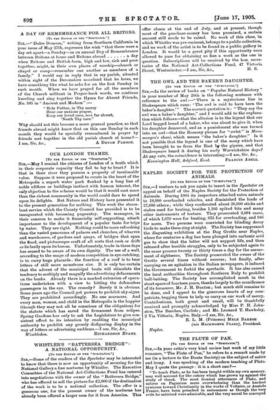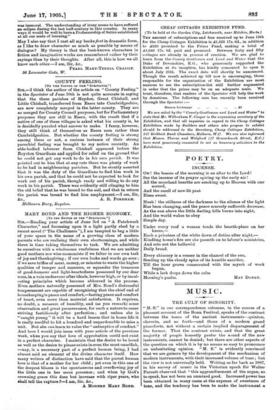THE FLUTE OF PAN. (To THE EDITOR or THE "SPECTATOR."]
SIR,—In your critic's very kind review last week of my little romance, " The Flute of Pan," he refers to a remark made by me (in a lecture to the Dante Society) on the subject of satire and irony. I was speaking of the modern teaching of Plato. May I quote the passage : it is a short one?— "To teach Plato, as he has been taught within my own memory, may well account for the outcry which has grown up against the study of Greek. The most ironical utterances of Plato, and satires on Paganism more overwhelming than the hardest cynicism toward Christianity in the works of Voltaire, or Anatole France, have' been preached in seriousness as though the Wiry evils he satirised were admirable, and the very moral he conveyed May I also say that I cast all my booksfirst in dramatic form,
as I like to draw character as much as possible by means of dialogue ? My theory is that the best-known characters in fiction and imaginative works are remembered rather by their sayings than by their thoughts. After all, this is how we all know each other.—I am, Sir, &c., PEARL MARY-TERESA CRAIGIE.
56 Lancaster Gate, W.







































 Previous page
Previous page